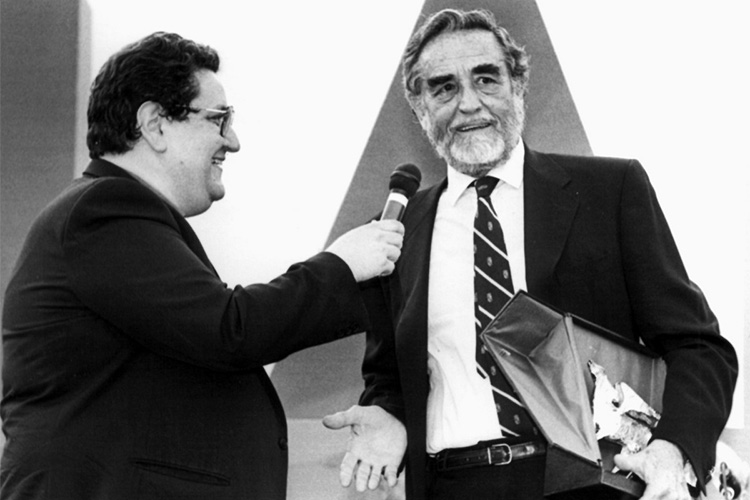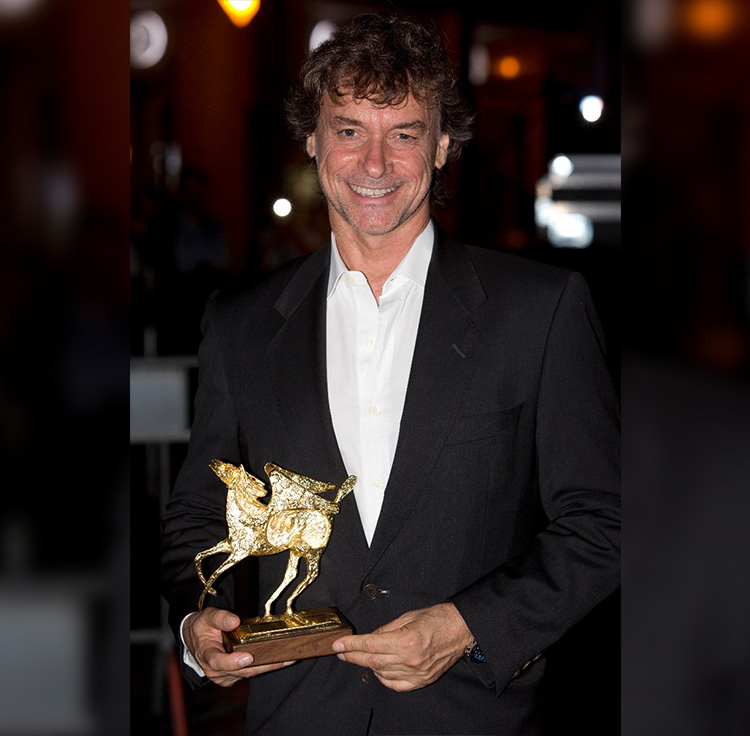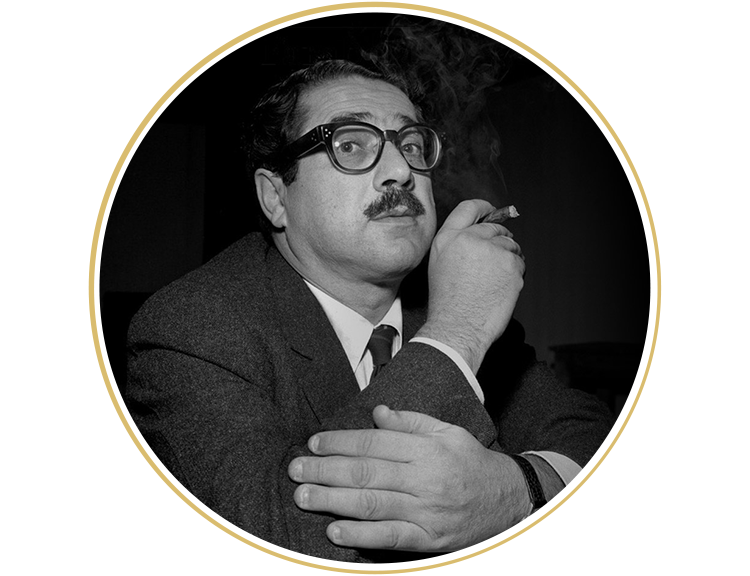HISTORY
Founded in 1973 by Edoardo Tiboni to honor Ennio Flaiano and constantly re-propose the study of his work, the Flaiano International Awards are a structure articulated in a series of events, exhibitions, conferences and shows in which concrete cultural motives come together: in the specific sense of the production of literary, theatrical, cinematic and television "facts" that culminate in the summer and autumn days of the awards ceremony.

Another fixed point in the programming of the Flaiano International Awards is the attention to theatre, recognized as an art form capable of finding space in any time. The great protagonists of the scene, both Italian and foreign, are also rewarded, as the list of winners of the Awards clearly shows.
In the literary section, the Flaiano International Awards has always been the bearer of presences of excellence in Pescara, attracting annually the interest of writers of unquestionable importance, some of which later awarded the Nobel Prize as Seamus Heaney, José Saramago, Derek Walcott, Imre Kertesz and Jean Marie Le Clézio.
Abraham B. Yehoshua
Finally, the section reserved for television and radio assigns awards every year to authors, performers, journalists, presenters, radio programs, and distinguish itself more and more for the quality and originality of its choices, rewarding the popularity, but also the social, artistic, informative commitment, for a TV of leisure but also and above all for a TV of truth and seriousness.


ENNIO FLAIANO
Pescara, 5 March 1910 - Rome, 20 November 1972
His works include: "Time to kill", "One and one night", "The game and the massacre", "The white shadows", "Autobiography of the blue of Prussia", "Diary of errors", "The war explained to the poor", "The woman in the closet", "A Martian in Rome".